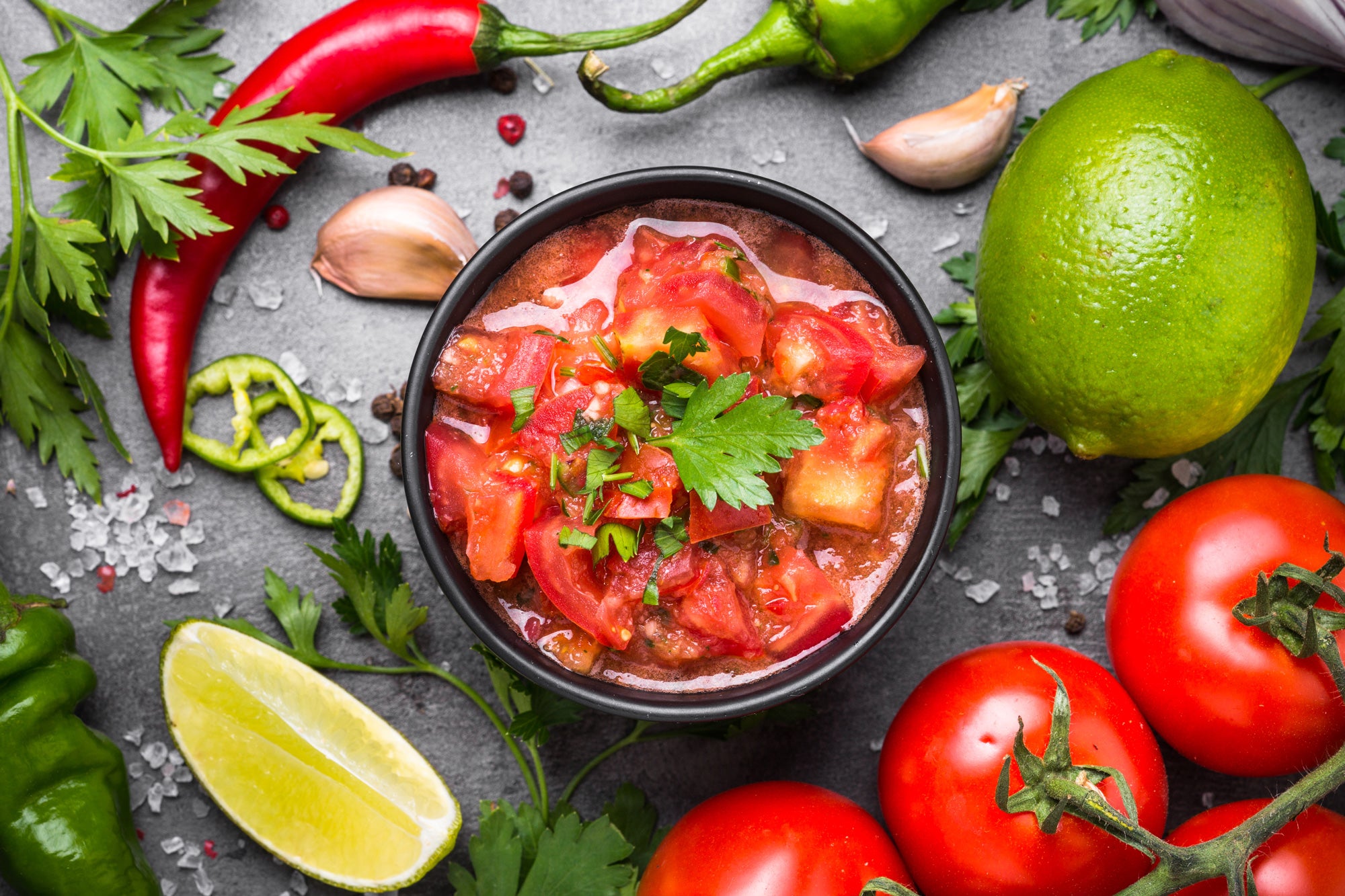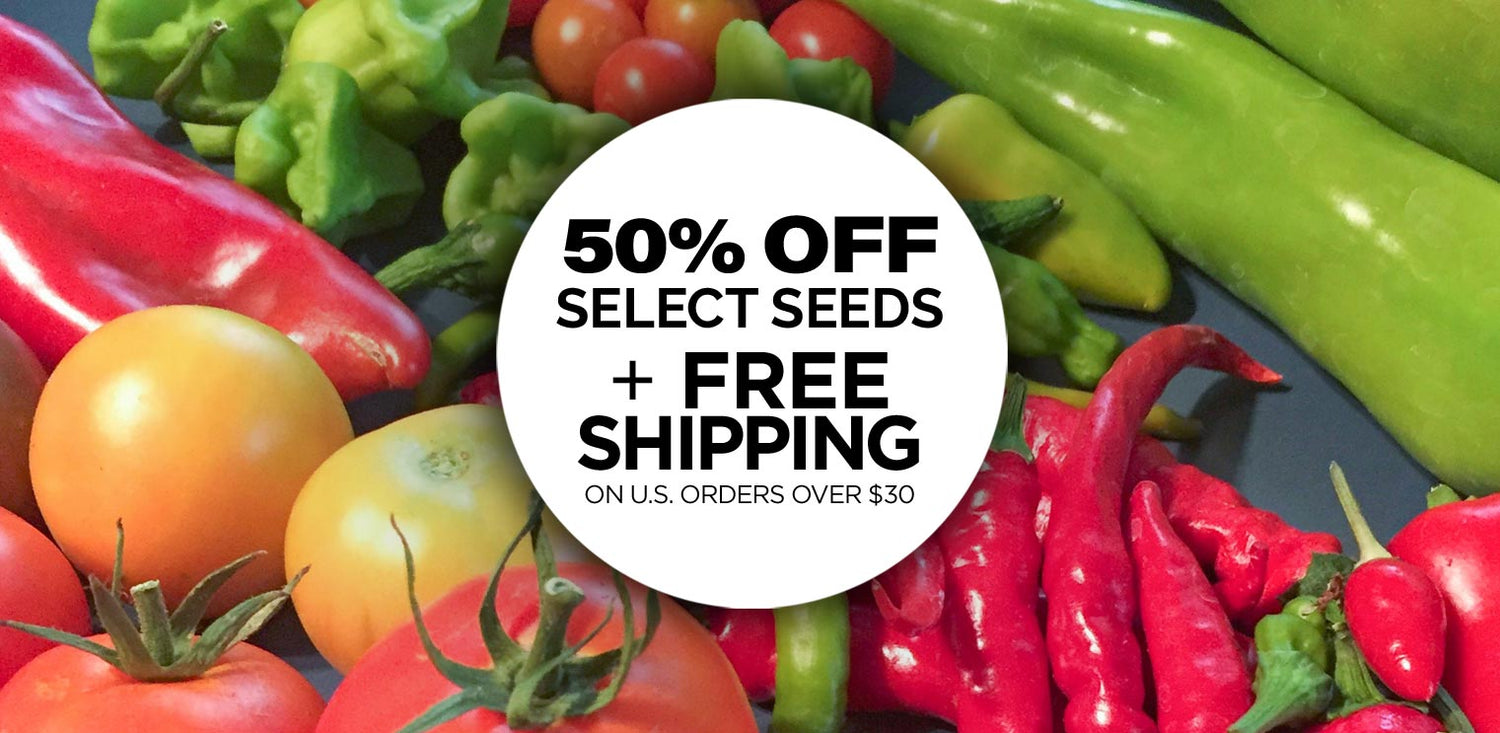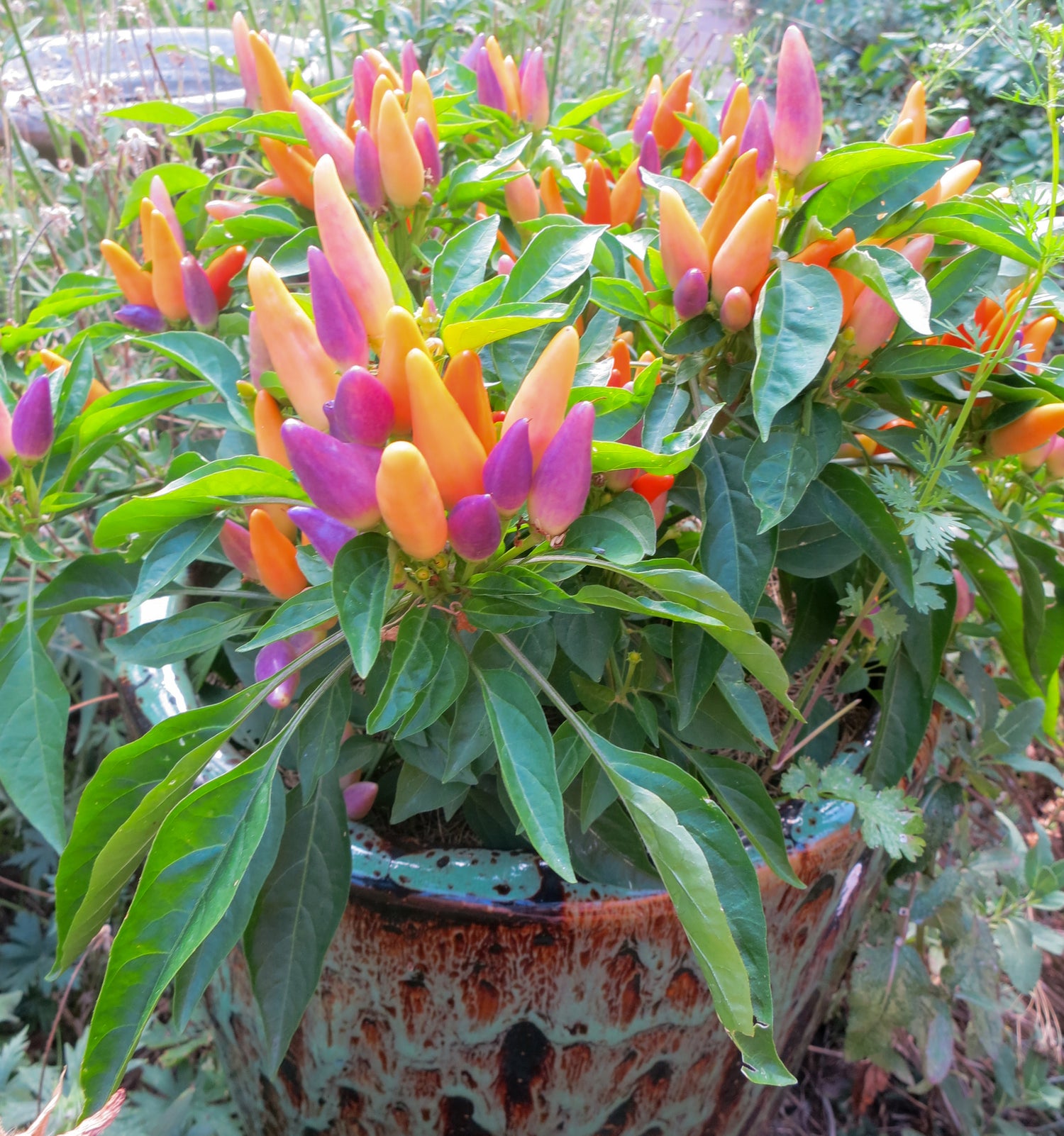
What are your biggest garden challenges?
Every gardener has challenges, it's part of what makes gardening fun! Learning something new every year, gardeners accumulate lots of knowledge over time via experience. What are some of your top challenges in your garden?
Weather
Weather can be harsh sometimes, especially with late spring storms, hurricanes and tropical storms, non-stop rain, freezing cold temperatures, super hot 90˚F+ temperatures, you name it. We like to start many vegetables such as Peppers, Tomatoes, Basil and Eggplant indoors to get them growing strong before planting them outside when the weather has warmed up sufficiently. We also will use shade cloth, hail netting, greenhouse film with hoop houses, overturned buckets, mulch, etc to help protect plants from crazy weather extremes.

Hail
If you live in a hail-prone area like the front range of Colorado or other areas, you may want to look into getting some hail protection for your garden. An overturned bucket can help, or many gardeners use shade cloth or hail netting suspended over pvc hoops to prevent hail damage.
Short Seasons
Using cold frames, hoop houses, and of course starting seeds indoors is a great way to get a head start on the season! Also, growing fast growing peppers or short season tomatoes is another great way to ensure you'll have lots of homegrown salsa before the winter arrives! You can also grow lettuce, radishes, and other fast growing vegetables throughout the seasons for a non-stop harvest.
Animals
Many gardeners have challenges with animals getting into their vegetable gardens. Deer, raccoons, squirrels, bunnies, birds and more can take some bites out of your precious produce. Putting up physical barriers is one of the best ways to keep them out.
Insects
Insects can do damage to vegetables, so we like to bring in the good guys to help us with pest control. While we never use pesticides or herbicides, we do love to plant lots of flowers, especially native flowers, near or around our vegetable gardens. Native flowers will bring in pest control such as ladybugs, lacewings, wasps and other beneficial insects that will help keep your garden pests under control and also help pollinate your garden veggies. Creating a homegrown national park in your backyard with native plants is a great way to create a complex ecosystem that will keep pests in check. A bird bath and bird houses are also great, as birds catch TONS of caterpillars to feed their young, so providing them with water and shelter can attract them to your garden.
Read more about companion plants for peppers
or why to plant Marigolds with Tomatoes to help them thrive.
Lack of Sunlight
Some gardeners have lots of trees or buildings that create too much shade for many vegetables. We recommend planting shade tolerant plants such as herbs and lettuce. You can also plant vegetables in pots so that you can move them into sunnier areas such as a patio or balcony.
Explore your neighborhood and city and see if there is a community garden near you that you can join. Many people join community gardens as they either don't have a yard or their yards are too shady to grow tomatoes and peppers. Community gardens are a great way to connect with your neighbors, plus you can swap seeds, plants, help, advice and produce.
Lack of Space
Containers are a great way to expand your garden, and you can succession plant lots of veggies so that you can have an ongoing harvest even in a small amount of space. We also highly recommend finding a local community garden to join, community gardens are so fun as you meet other gardeners, swap tips, plants and seeds, and share in the summer abundance. You can also grow some herbs like basil in a sunny window, or get some growing lights to grow other vegetables indoors if no outdoor space is available to you.
Disease
Disease is always a possibility, we usually remove diseased plants from the garden and replace with new plants, often with a totally different variety to avoid passing on the disease, for example, bush beans are a good replacement for a diseased tomato plant. Rotating your crops to different spots every year can also help cut down on diseases that may stay in the soil. Also be sure to provide airflow and space for plants, we recommend pruning off the bottom sets of leaves on tomato plants so no leaves touch the ground - this will help improve air circulation and reduce potential for disease from the soil touching the leaves.
Learn more about Spots on Pepper Leaves
Learn more about White Spots on Peppers: Sunscald
Learn about Common Tomato Disorders
Weeds
A never ending issue for most gardeners, weeds are a long term challenge. We like to pick them when we can, and use a hoe to cut them off at the base of the soil when young, or use a weeder to dig down and get the deeper roots of larger weeds. Removing weeds before they set seed is also helpful. We never use herbicides, they don't work long term anyway, and even if they did, that would not good for your veggies or your health! Grow cover crops and "green manure" to help combat weeds. Try no-till gardening to avoid digging up weed seeds.
You can also grow squash and pumpkins in weedy areas to help cut down on weeds as they shade the soil. The three sisters garden plays on this idea! Don't worry too much about weeds, they are inevitable, and if you pick a few every time in you're garden, you can stay on top of them. Don't expect to have a totally weed free garden, after all, many vegetables ARE a form of weed! A so called "weed" is only a plant that isn't where you want it. So don't worry so much, be happy, and weed often!
Poor Soil
Adding compost to poor soil can greatly improve it. You can also grow nitrogen fixing beans. Mulch your soil with grass clippings or leaves, especially over the winter months as this will help protect and feed the soil, plus it helps retain moisture. Grow winter cover crops and turn them over in the spring to add lots of organic matter to your soil.
Blossom End Rot
Blossom end rot is tomato disorder where the blossom end of the fruit (the portion of the fruit opposite the stem) breaks down and rots, thus reducing yield. Peppers, eggplants and squash can also be affected. Blossom end rot is caused by a lack of calcium in the fruit. To help prevent it, avoid conditions of too much or too little water and do not over-fertilize. Ensure the soil is fast draining as well, soggy roots will result in unhealthy plants. We also like to add crushed eggshells to our soil, and of course homemade compost to keep the soil healthy.
And remember, tomatoes are fickle beasts – every gardener has experienced a sickly or diseased tomato plant, that's why we like to plant a wide variety of tomatoes so that even if one plant has issues you'll still have other plants that are thriving. Learn more about Common Tomato Disorders and how to avoid them.
Plants Look Visibly Burnt
Make sure to harden off seedlings before transplanting outside to avoid burned, shocked seedlings. Also, if temperatures are over 90˚F, you can suspend shade cloth over your plants to help prevent them from getting sunburned. Learn why your Pepper plant leaves turning white »
Good luck with your gardens, never give up!
Remember...
Have a garden challenge
you want to share with us?
Reach out to us on our contact form or on social media (click on the social icons at the bottom of this page) and we can see if we can help!
Stay tuned as we provide more solutions to garden challenges!



















